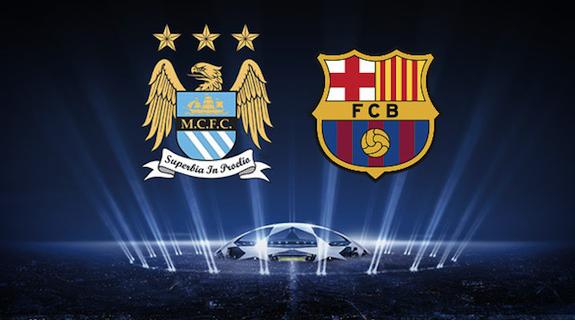Fan rivalry between sports teams, particularly in the realm of European football, is fierce, and sometimes even bloody. But for the team itself, those away fans also mean big business.
Choosing to embrace those visiting fans – and welcome their hard-earned money with open arms – Manchester City Football Club released an innovative new app prior to Tuesday’s Champions League Round of 16 match vs. Barcelona. The CityHome app, despite its rather unmemorable title, presents a step forward in sports clubs’ ongoing efforts to draw fans into the stadium by engaging them outside of it. Essentially a dynamic digital program of sorts but with the bonus of location-based tourism data, the app was specifically geared toward travelers from Barcelona, offering versions in both Spanish and Catalan. Users had access to information on area restaurants, bars, shops, sightseeing attractions and other things to do, as well as transit advice for approaching the Manchester City’s Etihad Stadium by foot, bus, tram or rail.
Once inside the Etihad Campus, the app connected visitors more directly with game-related activities, including concerts, live interviews and other pre-match events that occurred in the stadium’s fan zone, called BT City Square. It also ensured they would get to their seats on time via gate maps and seating guides.
There was plenty of content to sift through on CityHome as well, including statistics from previous game between Barcelona and Manchester City, Group Stage results for each team, and videos and articles highlighting Manchester City’s history and other club-related propaganda such the upcoming City Football Academy, and the Harlem Shake.
Engaging visitors even deeper, the app even encouraged Barcelona fans to take selfies over a graphic of the two clubs’ crests then post them on Twitter using the game-related hashtag #MCFCB (Manchester City Football + Futbol Club Barcelona). Actually helping the opposing team’s fans root more effectively for the enemy online may seem like sacrilege, but as Diego Gigliani, the club’s director of marketing, media and fan development put it, “Manchester City in not only proud of being a welcoming club for both opposition clubs and their fans alike, but also for guests visiting the city. As a club that has deep roots in the community, we are extremely passionate about putting Manchester on the European map as a destination for leisure and tourism, in addition to world-class football.”
As other big games arise, Manchester City intends to update CityHome with languages, travel info and other content befitting of the respective incoming culture. But the potential for an app specific to away fans goes far beyond helpful data. One could see a link-up to a separate app for the home fans, wherein the warring sides could trash talk or even compete beyond the main event via trivia or other in-app games. An in-stadium scoreboard connection could post the best insults for the crowd to see. And so on. The full benefits of an app like CityHome will surely be a work in progress, but one major sign of its success already presented itself: the app helped opposing fans so effectively, Manchester City lost the game to Barcelona. Final score: 0-2.
Tags:













































__twocolumncontent.jpg)











